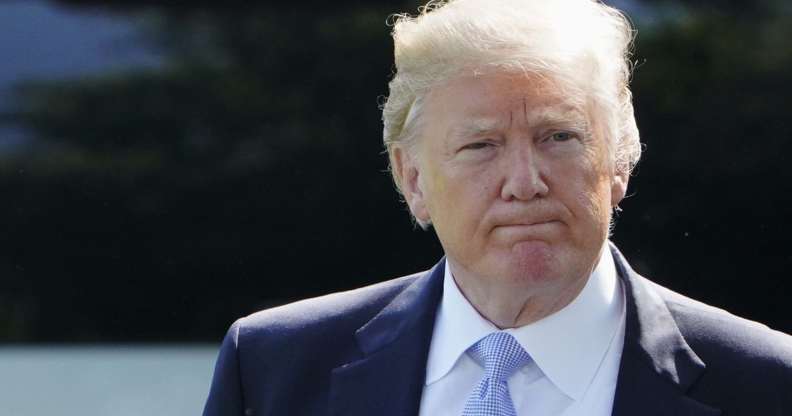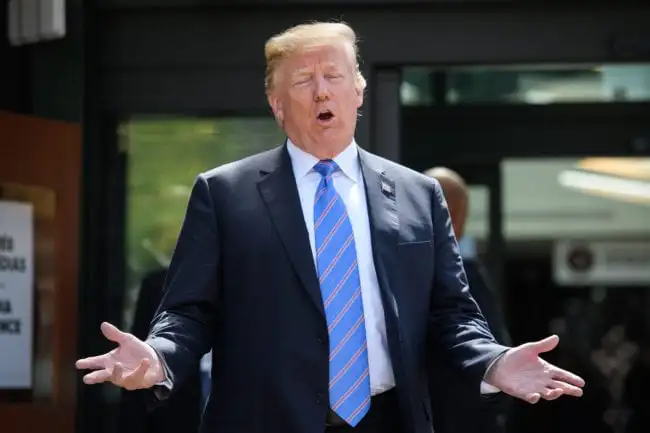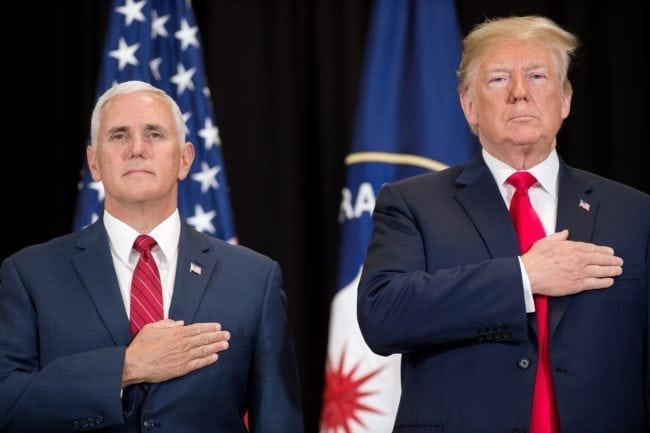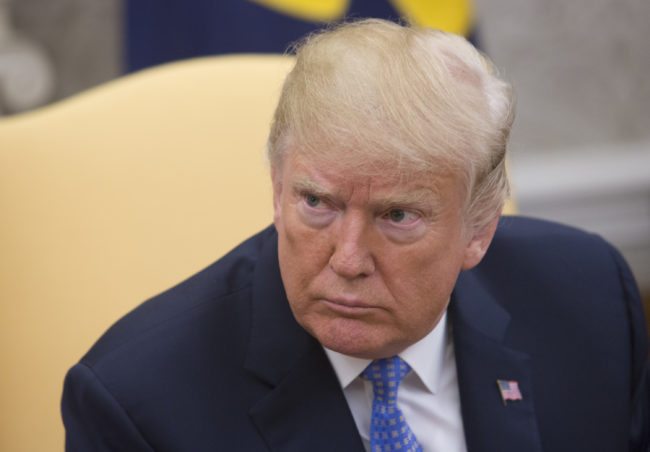How Trump’s travel ban will impact the LGBT community

Thousands are expected to protest Trump’s visit (Mandel NGAN /AFP/Getty)
The Supreme Court (SCOTUS) has upheld President Donald Trump’s travel ban, in a landmark decision which has been announced on the third anniversary of the SCOTUS decision to allow same-sex marriage.
The ban is a major victory in the administration’s mission to restrict the number of immigrants and visitors into the United States.
However the ruling marks a distinct change from the same day in 2015, when the Court voted for marriage equality rights. Critics say the latest Court ruling will dangerously impact the LGBT community.

(Leon Neal/Getty)
In a 5-4 decision, the judges confirmed the president’s powers over matters of national security.
The ban levels a range of restrictions against five majority-Muslim countries – Iran, Libya, Somalia, Syria and Yemen. But there’s also travel restrictions on North Korea and Venezuela.
Human rights defenders have attacked the decision and highlighted how the LGBT community will be impacted by the SCOTUS decision.
In a podcast discussing Trump’s third order of the ban, LeGaL’s (a New York LGBT group of lawyers) Executive Director Eric Lesh said: “Trump’s travel ban is dangerous particularly for members of the LGBTQ community. In addition seven of the eight countries that have been targeted by Trump’s ban, explicitly criminalise homosexual conduct, some of them authorise or even mandate a death penalty for such offences.”
While Human Right’s First’s Shawn Gaylord spoke about the impact of the ban on queer and trans communities, in 2017: “Barring LGBT people from these seven countries creates an additional burden and makes them increasingly under threat to violent acts,” he said.
“LGBT refugees already face heightened risks based on their sexual orientation or gender identity. They are vulnerable to violence during the entire resettlement process and may have additional challenges as they adjust to their new lives after resettlement,” Gaylord added.

US President Donald Trump and US Vice President Mike Pence (SAUL LOEB/AFP/Getty)
Lambda Legal, an American civil rights organisation that focuses on lesbian, gay, bisexual, and transgender communities, also released a statement in reaction to the ban.
CEO Rachel B. Tiven said: “As a queer woman and a Jew, I am outraged and frightened. The LGBT community knows what it’s like to be red meat for a demagogue’s base. Future generations will ask us what we did to object. We stand in solidarity with our Muslim family – straight and gay – and pledge our continued support to fight the ban and the stigma, discrimination, and violence it helps encourage.”
Deputy legal director with the American Civil Liberties Union, Cecillia Wang, tweeted that the decision marked “a dreadful day” for the United States. “But we Americans will fight on to express the will of the people to uphold equality and freedom,” she wrote.

(Chris Kleponis-Pool/Getty)
The travel ban’s history began in December 2015, when Trump called for “a total and complete shutdown of Muslims entering the United States until our country’s representatives can figure out what is going on,” during his Presidential campaign.
During his first week in office Trump signed the executive order to ban people from seven Muslim-majority countries. The Supreme Court halted enforcements of most of the ban, until March 2017 when Trump issued a “watered down” second order. The Supreme Court allowed the second order to go into effect in part.
But in September Trump issued a third ban with more changes. After challenges, the Supreme Court allowed this version to go into effect while appeals were heard.

